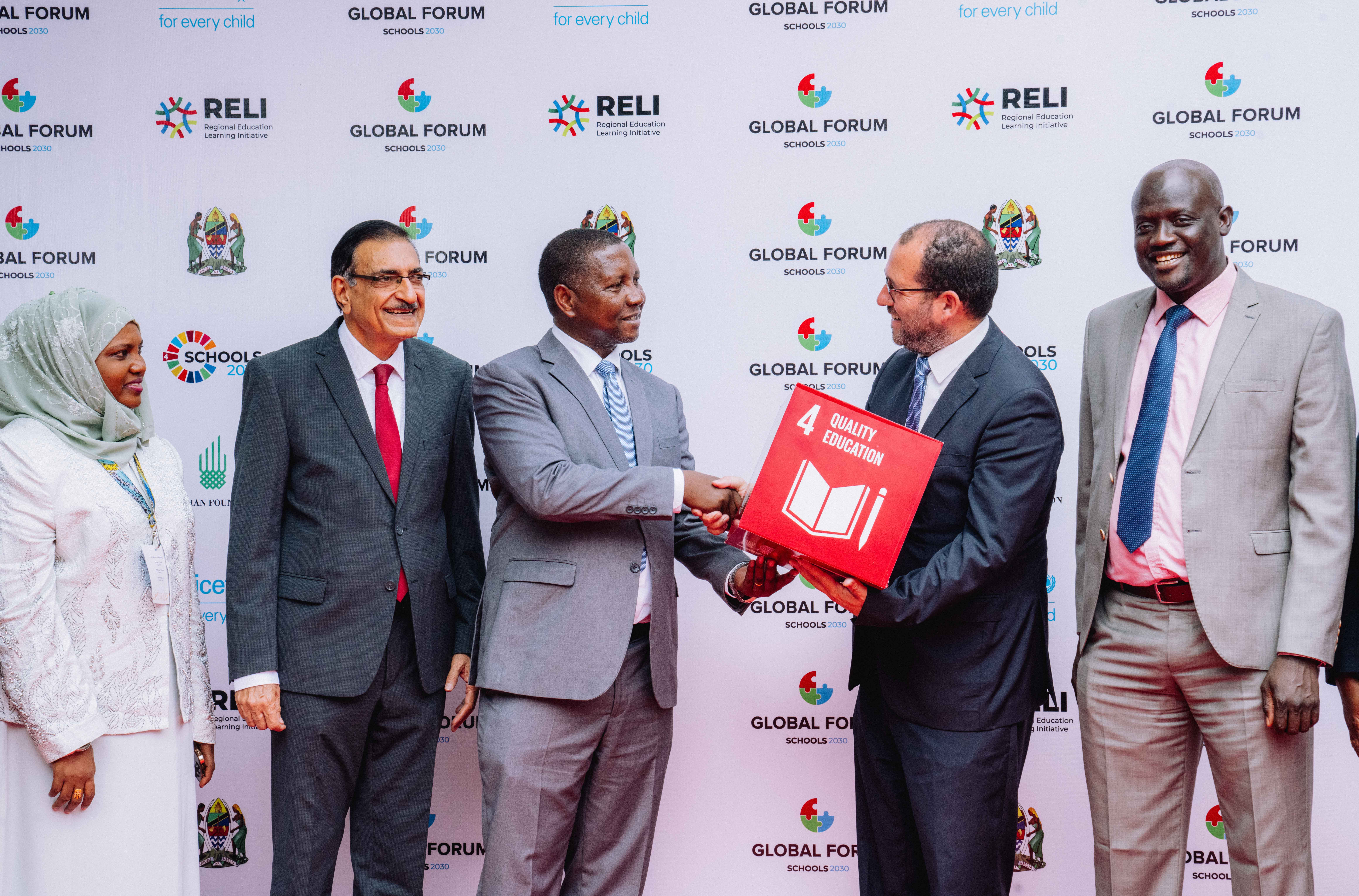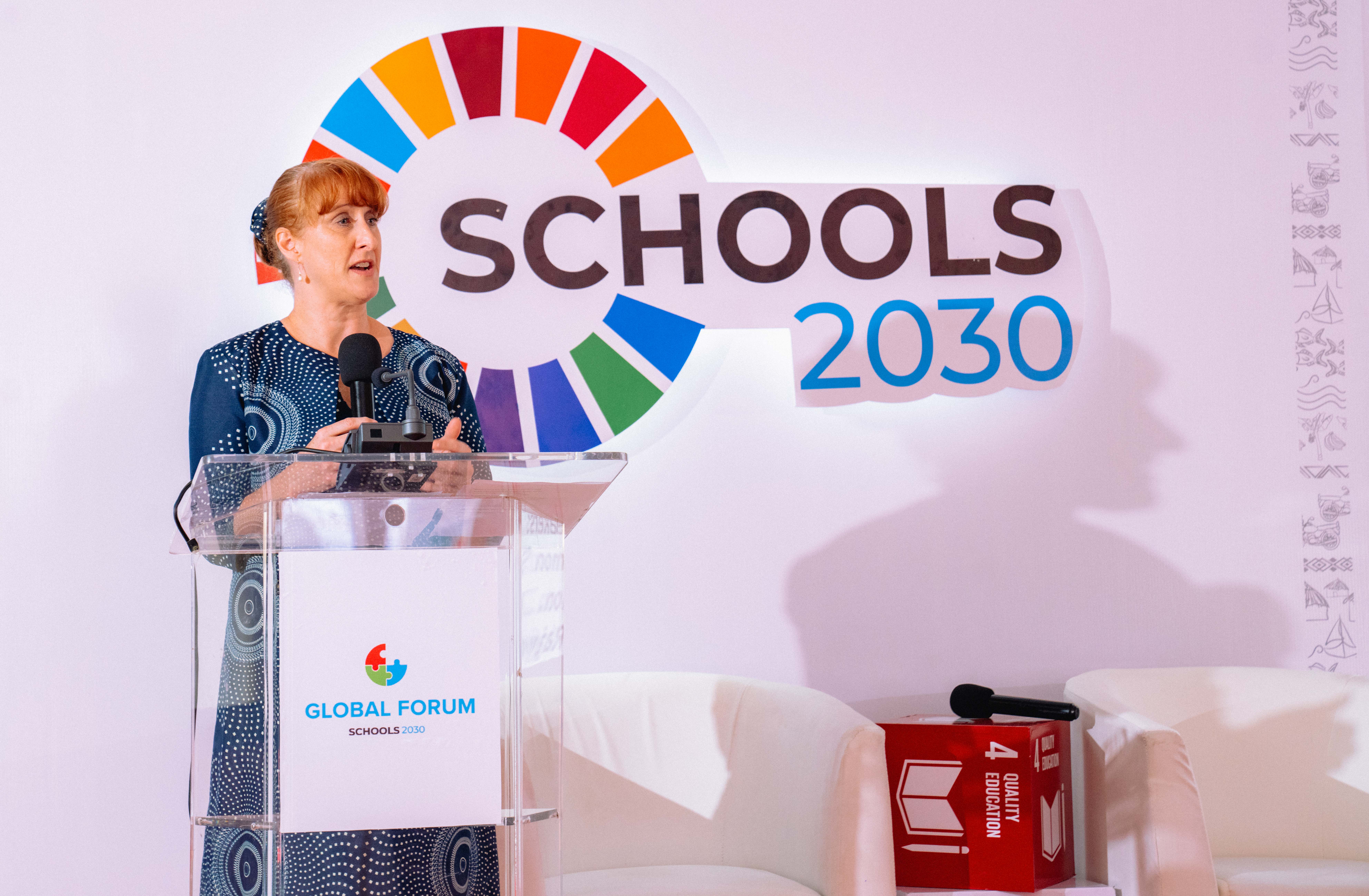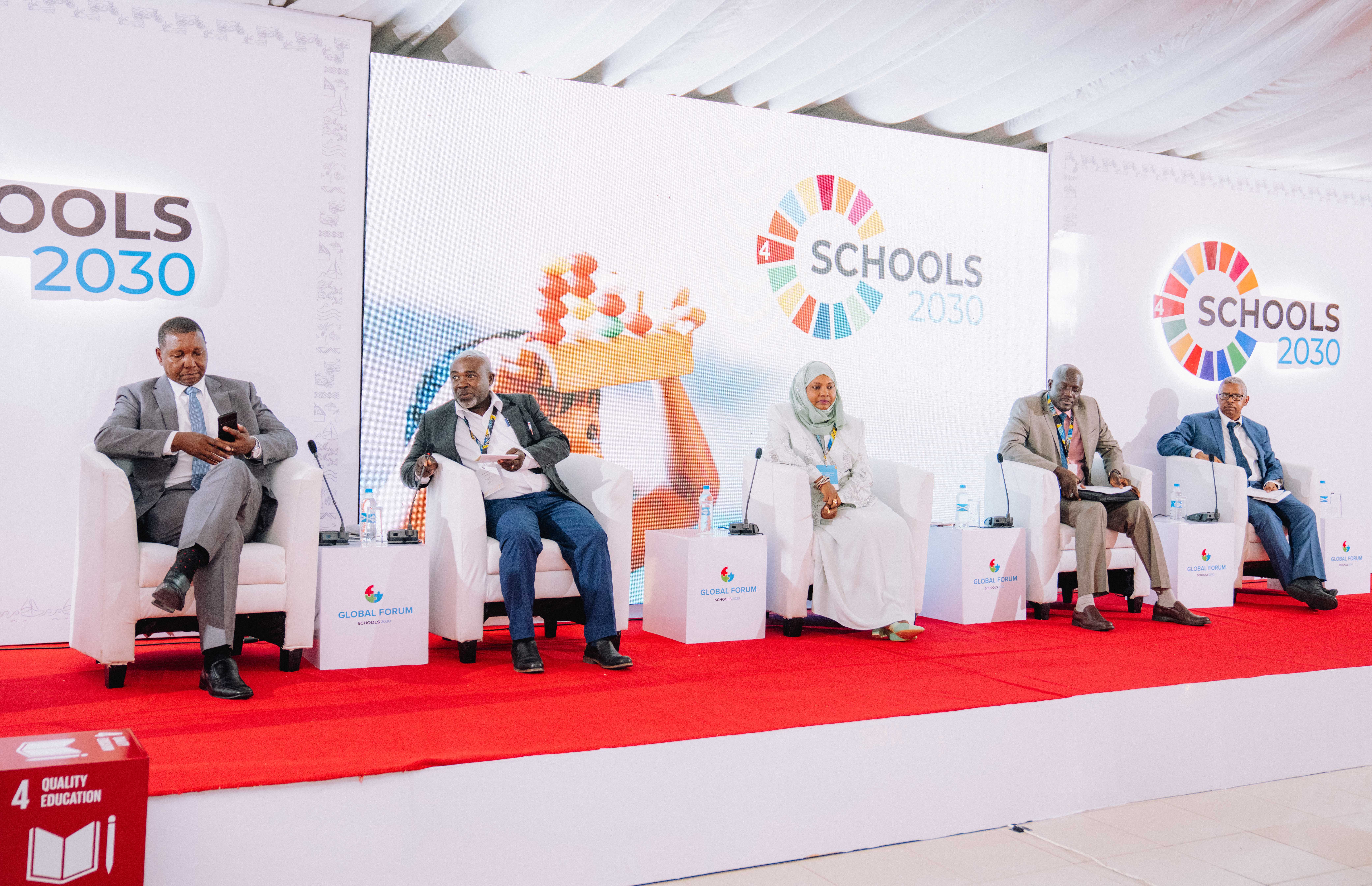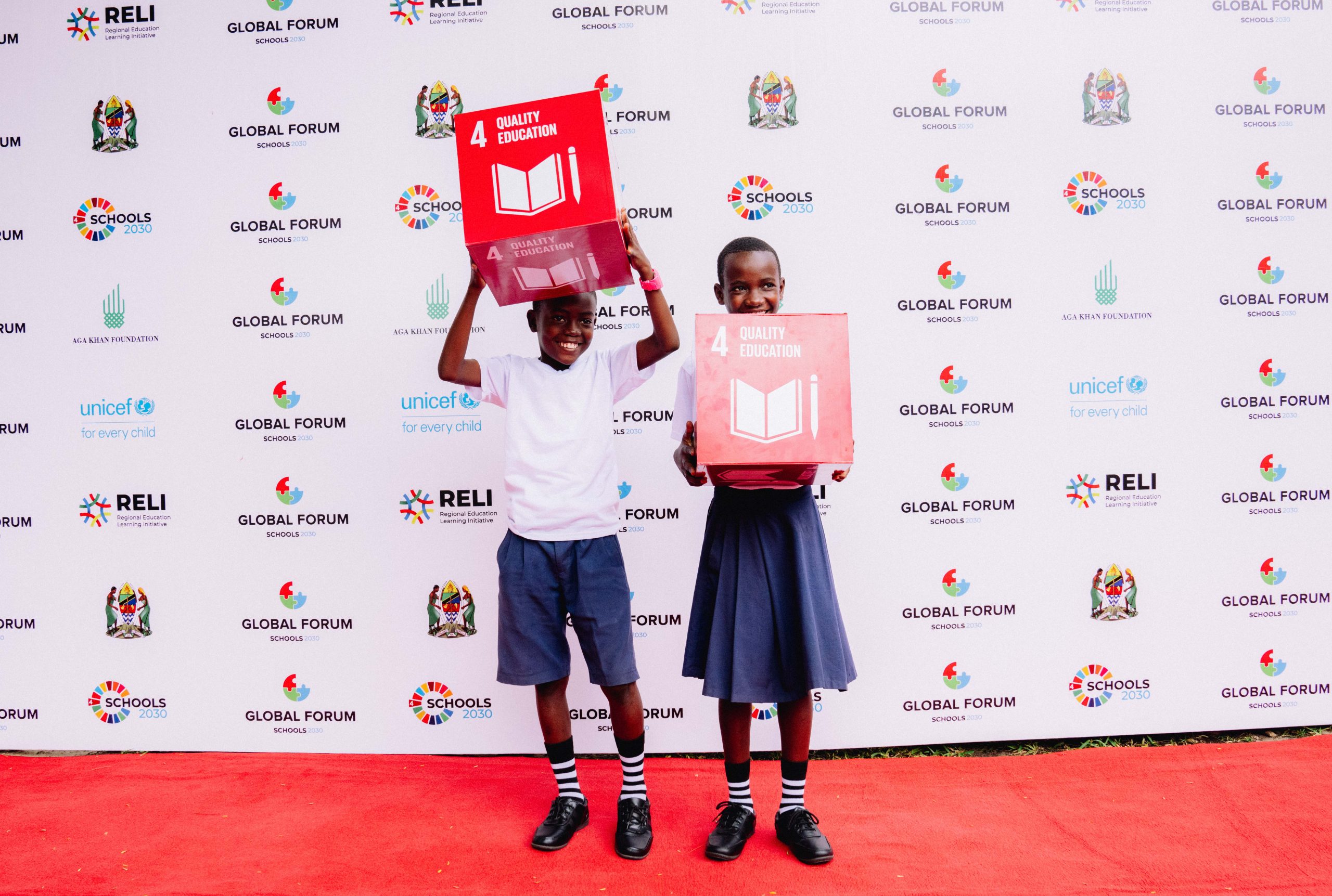When we think about education, we think about the normal way of learning. Teaching on blackboards, seated on wooden chairs and tables, learning and relearning a, b, c till it is stuck through your head, but could
there be another way of learning? Better ways even?
The duty of how students can learn and understand better lays in the hands of the teachers that interact with the students every single day but often, we are stuck to the normal ways of learning because important decisions of how the curriculum is juggled lays within the hands of other education stakeholders like the government.
According to UNICEF, in Tanzania, an estimated 2 million children between the ages of 7 and 13 years
are out-of-school. Almost 70 per cent of children aged 14 –17 years are not enrolled in secondary education while a mere 3.2 per cent are enrolled for the final two years of schooling.
One of the main reasons is students not having an interest to study or not even understanding what is taught in their class. To see more children not just going to school but really understanding what they are studying while enjoying the process and achieving their full potential was the drive behind Schools2030.

counterpart, Prof Joao Costa take a photo as they get ready to enter into roundtables during day 1 – assessment day – at the inaugural Schools2030 global forum.
Schools2030 is a ten-year participatory learning improvement programme based in 1,000 government schools across ten countries that uses the principles of human-centred design, focusing on the key transition years of ages 5, 10 and 15 years old to support teachers and students to design and implement education micro-innovations to improve teaching and learning practices.
Mwajuma Mlezi is a nursery school teacher at Mbande School in Temeke district, Dar es Salaam. She has been a part of the Schools2030 for a year now and the impact of the program has made a major difference in her life and that of her students.
“Through Schools2030, I have learnt to enjoy my classes and make my students interested in learning. I no longer have students that skip classes because they are now eager to learn. The program has helped me teach easily and my students to understand better,” she acknowledged.
Nevertheless, what’s even more interesting is how the rate of her students’ improvement in learning has grown.
She says, “Before my students had a major problem in reading, writing and counting, in addition, the students forgot what was taught the day before but right now only a few students can’t read and write and they are improving.”
Mlezi recounts when 44 out of 100 students in her class couldn’t read nor write, but now that number has dropped to only 11 students, who also are showing improvements.

Canada’s contribution to education improvements.
Through the program she has learnt to understand her students better and be creative to have new tactics to teach her students. It is through these tactics that now her students are looking forward to learning new things.
“At school we have a big playground that I thought could make a good way for the children to learn. I write letters on pieces of papers and hand them to the students as they play on swings. During the play, they would put the letters together to form a single word. That turned out to be both fun and educative for the students and myself,” she added.
Schools2030 has been working with 1000 schools and learning sites across 10 countries to improve the quality of learning, and this year they hosted the inaugural Schools2030 Global Forum in Dar Es Salaam to showcase the work of these teachers to global education stakeholders.
The Global Forum took place two weeks ago, with stakeholders from within and outside the country convening to cast light on how teacher expertise can be used to effectuate an equitable education and quality learning for children across the world. It was graced by the attendance of Tanzania’s Minister for Education, Prof Adolph Mkenda and his counterparts, Lela Muhammad Musa from Zanzibar and Joao Costa from Portugal. The ministers shared the stage with teachers from across the world, in dialogue together about how education can be improved.
Speaking at the Schools2030 Global Forum on Tuesday 21 June, Tanzania’s Minister for Education, Science and Technology, Prof Adolph Mkenda necessitated the urge to revisit and modify education policy around the world to match with current demands.
“Children across the globe do not have access to education opportunities. Access and quality education are crucial to make the future of learning better,” he said. In his utterance, he claimed that the Government has already begun reshuffling the education system to meet local and global needs without losing its attachment to the environment.
Despite the efforts that governments are making to improve the quality of education in their countries, teachers still play a crucial part in the realization and implementation of the strategies agreed upon.

Headteacher Ephraim Kilaha from Mbande Primary School in Tanzania shares the stage with Minister Mkenda and representatives from UNICEF Tanzania and the Regional Education Learning initiative (RELI).
Sarah James, the Schools2030 Global Communications Manager stressed the importance of inviting teachers to give their wisdom on teaching strategies.
She said, “Teachers should be treated as experts as they are the ones with firsthand experience of what it’s like to teach their students. With this forum we aim to bring teachers together with stakeholders like the government so that they can see these innovations by the teachers and discuss new ways to improve teaching and learning experiences in their countries.”
It is a teacher’s dream to see their students succeed and excel in class and Ms. Mlezi’s dream is gradually becoming a reality. “I am really happy that I got to be impacted by the program. This forum has also helped me learn even more about the challenges that we teachers face, but also how my fellow teachers from other countries solve the challenges and how I can localize those solutions and improve my own teachings,” she added.
Nevertheless, Mbande Secondary School Headmaster, Ephraim Kilaha stated that the Government should not sleep on the aired plaudits but instead use them as a wake-up call to improve education infrastructure so that students can learn better.
“Teachers should concentrate on solutions that are centred on students. This will result in a better environment and they will realise that learning is part of who they are,” commented Kilaha.
The impact that Schools2030 has had on these teachers doesn’t only end with the teachers that are fortunate to be in the program. Ms. Mlezi uses her opportunity to teach other teachers on how to innovate and be creative with their learning style, something that she has achieved in her own school.
Schools2030 Global Forum was co-hosted by Aga Khan Foundation (AKF) who leads on the programme
implementation, UNICEF, the Regional Education and Learning Initiative (RELI) and the Government of Tanzania.
It invited fresh perspectives and expertise from delegates from more than 25 countries to showcase and
see low-cost and scale-able innovations that will transform education systems to improve holistic learning outcomes for the most marginalized learners worldwide.
This article was originally published in The Citizen newspaper on 4 July 2022.
